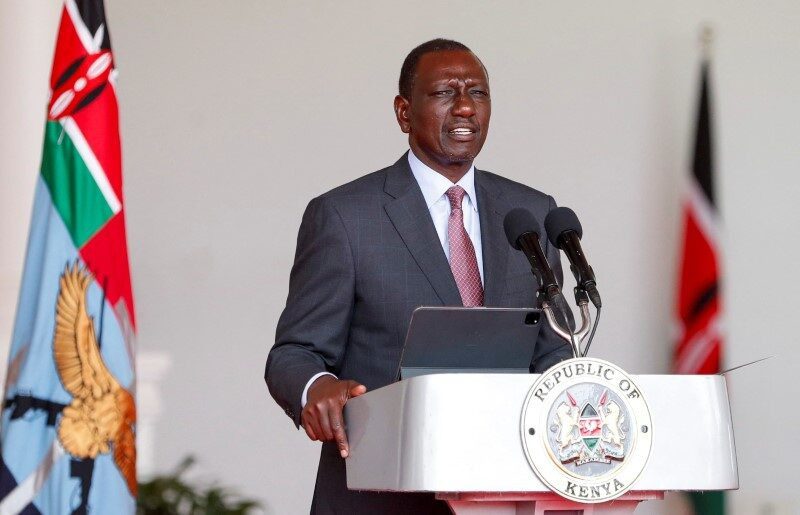
Tuesday 15th April 2025

非洲记者报道
The Kenyan government found itself in damage control mode after a social media post sparked unexpected financial ripples. On April 2, the Ministry of Finance briefly published a post on X (formerly Twitter) suggesting that China’s Finance Minister had expressed openness to discussing Kenya’s debt restructuring. The statement was swiftly deleted and reposted without any reference to debt talks. This sequence of events sent shockwaves through investor circles, especially given Kenya’s already fragile fiscal outlook. Authorities were quick to clarify that no such discussions occurred during the delegation’s visit to Beijing. The Treasury emphasized that the high-level meetings focused on ongoing bilateral cooperation, but not on debt relief.
This misstep couldn’t have come at a worse time. Kenya is under significant financial pressure due to mounting external debt and the rising costs of servicing it. The country had just missed a review with the International Monetary Fund in March, and this raised questions about its fiscal stability. The fleeting mention of possible debt restructuring, even though retracted, intensified fears of a looming credit crunch. Investors reacted quickly, pushing up the yields on Kenya’s Eurobonds as anxiety over the country’s ability to meet debt obligations deepened.
Finance Minister John Mbadi was forced to address the situation publicly. He affirmed that while China remains committed to supporting Kenya’s infrastructure development, there were no talks on formal debt relief. China is Kenya’s largest bilateral lender, having funded several high-profile projects like the Standard Gauge Railway. For Nairobi, maintaining good relations with Beijing while projecting confidence to investors has become a tightrope walk.
Analysts note that this incident highlights the sensitivity of global markets to even the slightest signs of distress from emerging economies. In Africa, where several nations are grappling with debt burdens, a slip-up like Kenya’s can influence regional sentiment. Countries like Ethiopia and Uganda could see their borrowing costs affected if investors perceive a broader trend of fiscal weakness in East Africa.
What this episode ultimately shows is that communication in financial diplomacy matters. A single tweet suggesting vulnerability was enough to unsettle bond markets and force the government to walk back its statements in a hurry. As Kenya looks to secure future funding and maintain investor confidence, it will need to strike a delicate balance between transparency and reassurance. The government’s response going forward will play a critical role in calming markets and shaping how both domestic and international stakeholders assess its fiscal credibility.


